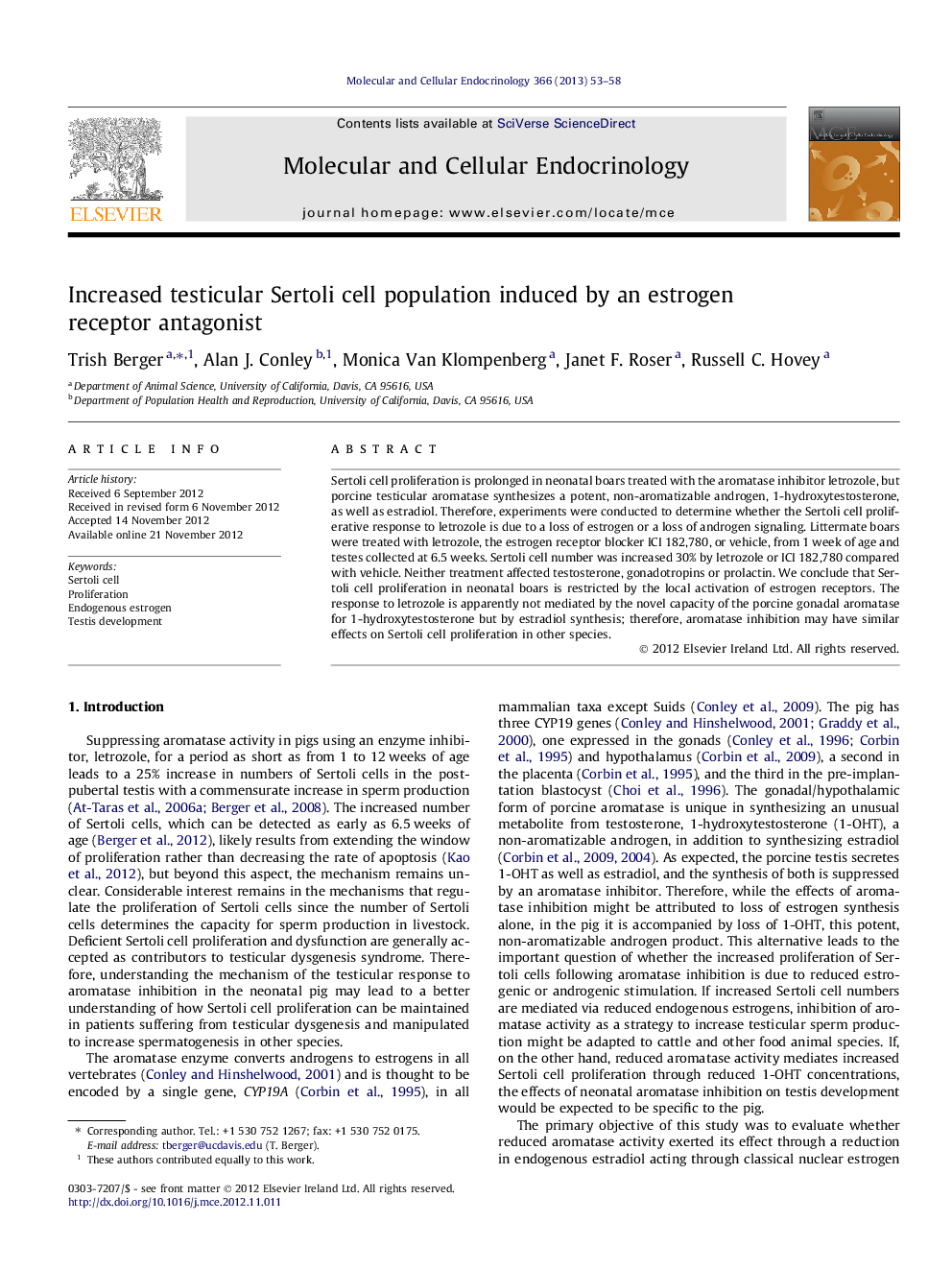| Article ID | Journal | Published Year | Pages | File Type |
|---|---|---|---|---|
| 2196241 | Molecular and Cellular Endocrinology | 2013 | 6 Pages |
Sertoli cell proliferation is prolonged in neonatal boars treated with the aromatase inhibitor letrozole, but porcine testicular aromatase synthesizes a potent, non-aromatizable androgen, 1-hydroxytestosterone, as well as estradiol. Therefore, experiments were conducted to determine whether the Sertoli cell proliferative response to letrozole is due to a loss of estrogen or a loss of androgen signaling. Littermate boars were treated with letrozole, the estrogen receptor blocker ICI 182,780, or vehicle, from 1 week of age and testes collected at 6.5 weeks. Sertoli cell number was increased 30% by letrozole or ICI 182,780 compared with vehicle. Neither treatment affected testosterone, gonadotropins or prolactin. We conclude that Sertoli cell proliferation in neonatal boars is restricted by the local activation of estrogen receptors. The response to letrozole is apparently not mediated by the novel capacity of the porcine gonadal aromatase for 1-hydroxytestosterone but by estradiol synthesis; therefore, aromatase inhibition may have similar effects on Sertoli cell proliferation in other species.
► Reducing endogenous estrogens and ESR1 and ESR2 blockade were compared. ► Estrogens were reduced by aromatase inhibition; receptors inactivated with ICI 182,780. ► Similarly increased Sertoli cell numbers were observed following each manipulation. ► FSH, LH, testosterone, and prolactin were not affected by either treatment.
